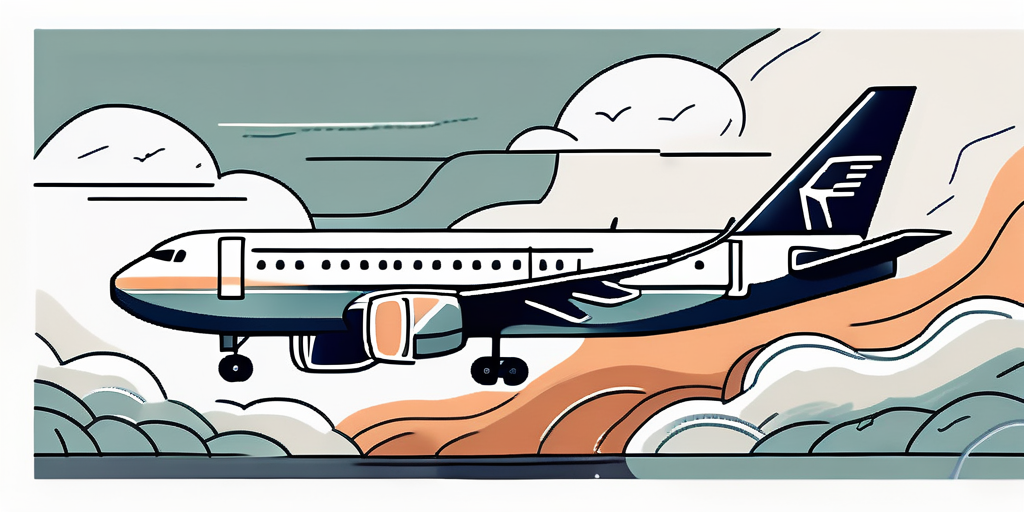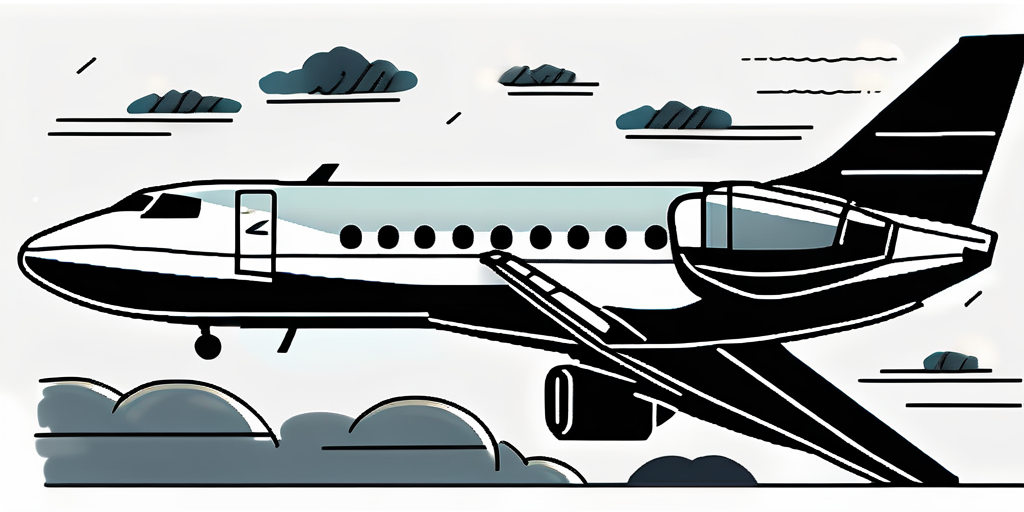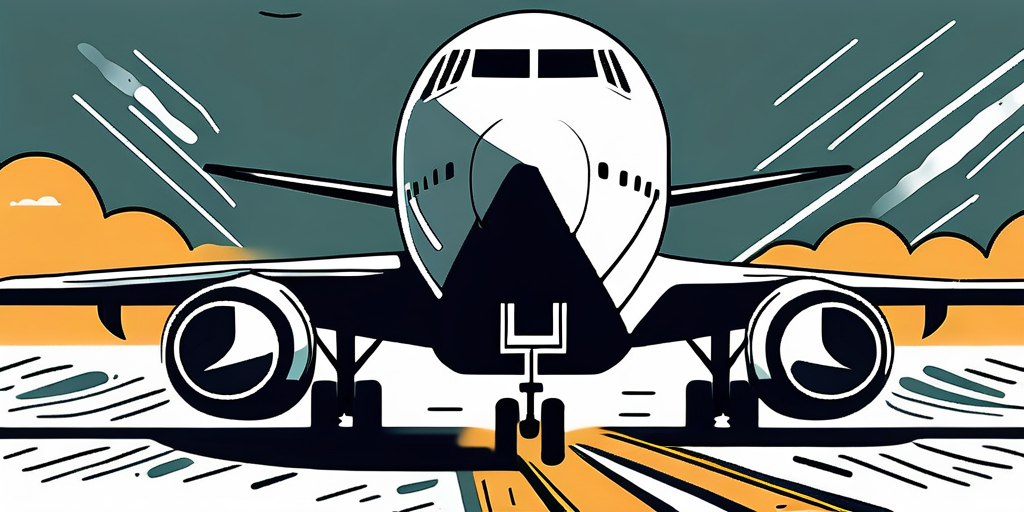Flight Cancellation: Understanding Extraordinary Circumstances
Discover what constitutes extraordinary circumstances in flight cancellations. Learn about the impact on travelers and how to manage them.
In the world of air travel, flight cancellations are an unfortunate reality that passengers may face at some point in their journey. These cancellations can disrupt travel plans and cause frustration and inconvenience to those affected. Understanding the concept of extraordinary circumstances is essential in such situations, as they play a significant role in determining the rights and responsibilities of both airlines and passengers.
Defining Extraordinary Circumstances in Air Travel
Extraordinary circumstances are events that are unforeseeable, unavoidable, and beyond the control of the airline. These events are considered extraordinary because they are outside the normal operation of the airline and cannot be attributed to their negligence or failure to fulfill their obligations. Such circumstances can include, but are not limited to, severe weather conditions, natural disasters, political unrest, air traffic control restrictions, and security risks.
Legal Framework for Extraordinary Circumstances
Various international laws and regulations govern the handling of flight cancellations and the rights of passengers during such situations. One of the most influential regulations in Europe is EU Regulation 261/2004, which establishes common rules for compensation and assistance to passengers in the event of denied boarding, flight cancellations, or long delays.
Common Examples of Extraordinary Circumstances
While every flight cancellation is unique, some situations commonly fall under the category of extraordinary circumstances. Inclement weather conditions, such as hurricanes, snowstorms, or volcanic eruptions, can pose risks to aircraft and passengers and may lead to flight cancelations. Political instability, civil unrest, and military conflicts can also result in flight disruptions. Furthermore, strikes by air traffic controllers, airport staff, or airline employees can cause widespread cancellations and delays.
Another example of an extraordinary circumstance is the occurrence of a global pandemic, such as the COVID-19 outbreak. The rapid spread of the virus and the subsequent implementation of travel restrictions and lockdown measures have had a significant impact on air travel worldwide. Airlines have been forced to cancel numerous flights and adjust their schedules to comply with government regulations and ensure the safety of passengers and crew.
In addition, technical issues with aircraft can also be considered extraordinary circumstances. Although airlines have strict maintenance procedures in place, unforeseen mechanical problems can arise, leading to flight cancellations or delays. These issues can range from minor technical glitches to major malfunctions that require extensive repairs.
How Airlines Handle Extraordinary Circumstances
When facing extraordinary circumstances, the way airlines handle the situation can vary. However, certain fundamental principles apply. Effective communication and customer service play a crucial role in ensuring the comfort and satisfaction of passengers during such events.
Extraordinary circumstances can encompass a wide range of events, from severe weather conditions and natural disasters to unexpected technical issues or labor strikes. In these situations, airlines must navigate complex logistical challenges while prioritizing passenger safety and well-being.
Communication and Customer Service
During flight cancellations due to extraordinary circumstances, airlines should promptly inform passengers about the situation and provide clear instructions regarding alternative flights, rebooking options, and any available compensation or assistance. Transparent and timely communication helps passengers make informed decisions and reduces confusion and frustration.
Moreover, effective customer service involves not only addressing immediate concerns but also demonstrating empathy and understanding towards affected passengers. By showing genuine care and concern, airlines can build trust and loyalty even in challenging circumstances.
Compensation and Refund Policies
While compensation and refund policies differ among airlines and jurisdictions, in cases of flight cancellations due to extraordinary circumstances, airlines may not be required to provide compensation to passengers. However, they should offer alternative transportation options or full refunds, depending on the circumstances.
It is essential for airlines to have clear and fair policies in place to handle situations where passengers are inconvenienced due to events beyond the airline's control. By upholding high standards of customer service and communication, airlines can mitigate the impact of extraordinary circumstances on their passengers and uphold their reputation in the industry.
Rights of Passengers during Extraordinary Circumstances
Understanding the rights and entitlements as a passenger during flight cancellations caused by extraordinary circumstances is vital. It ensures that individuals are aware of what they are entitled to and can assert their rights if necessary.
 During such unforeseen events, passengers often find themselves in need of assistance and clarity regarding their options. It is crucial for travelers to be informed about the various regulations and protections in place to safeguard their interests and ensure a smooth resolution to any disruptions in their travel plans.
During such unforeseen events, passengers often find themselves in need of assistance and clarity regarding their options. It is crucial for travelers to be informed about the various regulations and protections in place to safeguard their interests and ensure a smooth resolution to any disruptions in their travel plans.
Understanding EU Regulation 261/2004
EU Regulation 261/2004 provides comprehensive protection to passengers flying within the European Union. The regulation establishes the rights of passengers and the obligations of airlines in the event of denied boarding, flight cancellations, or significant delays. Passengers affected by qualifying flight cancellations may be entitled to compensation, re-routing, or a refund.
Furthermore, EU Regulation 261/2004 also covers instances where passengers are subjected to long delays or denied boarding, offering a framework for compensation and assistance to mitigate the inconvenience caused. This regulation serves as a crucial tool for passengers to seek recourse and uphold their rights in the face of unexpected disruptions to their air travel.
Rights under US Aviation Consumer Protection
In the United States, the Aviation Consumer Protection Division (ACPD) of the Department of Transportation (DOT) ensures that passengers' rights are protected during air travel. While there is no specific regulation comparable to EU Regulation 261/2004, passengers are generally entitled to compensation or alternate transportation options in cases of flight cancellations due to extraordinary circumstances.
Passengers traveling within the United States or on flights operated by US carriers are encouraged to familiarize themselves with the rights and protections afforded to them under US aviation laws. By understanding these regulations, passengers can navigate any disruptions with confidence, knowing their entitlements and seeking appropriate remedies when faced with flight cancellations or delays beyond their control.
Mitigating the Impact of Flight Cancellations
While it is impossible to prevent flight cancellations caused by extraordinary circumstances entirely, there are measures passengers can take to mitigate the impact and ensure a smoother travel experience.
 Flight cancellations can be a major inconvenience for travelers, disrupting carefully planned itineraries and causing stress. However, understanding the reasons behind flight cancellations can help passengers better prepare for such situations. Common reasons for flight cancellations include adverse weather conditions, technical issues with the aircraft, air traffic control restrictions, and crew scheduling problems.
Flight cancellations can be a major inconvenience for travelers, disrupting carefully planned itineraries and causing stress. However, understanding the reasons behind flight cancellations can help passengers better prepare for such situations. Common reasons for flight cancellations include adverse weather conditions, technical issues with the aircraft, air traffic control restrictions, and crew scheduling problems.
Travel Insurance and Extraordinary Circumstances
Travel insurance can provide financial protection during unexpected events, including flight cancellations. When purchasing travel insurance, it is essential to review the policy carefully to understand coverage limitations and exclusions related to extraordinary circumstances.
Additionally, some travel insurance policies offer coverage for trip interruptions due to unforeseen events such as natural disasters, medical emergencies, or terrorist incidents. It is crucial for passengers to assess their individual travel needs and choose a policy that provides adequate coverage for their specific circumstances.
Proactive Measures for Travelers
Being proactive and well-prepared can significantly help passengers during flight cancelations caused by extraordinary circumstances. Checking flight statuses regularly, signing up for airline notifications, and having alternative travel plans in mind are advisable practices.
Moreover, maintaining open communication with the airline and seeking assistance from customer service representatives can also be beneficial in finding suitable solutions in the event of a flight cancellation. Airlines may offer rebooking options, accommodation arrangements, or compensation depending on the circumstances surrounding the cancellation.
The Future of Flight Cancellations and Extraordinary Circumstances
The aviation industry is continuously evolving, and advancements in technology, together with policy changes, can impact how flight cancellations caused by extraordinary circumstances are managed in the future.

Technological Advances and Flight Cancellations
Technological advancements, such as improved data analytics and communication systems, can enhance the efficiency and accuracy of airlines' response to flight cancellations caused by extraordinary circumstances. Real-time information sharing and predictive modeling can help minimize the impact on passengers and streamline airline operations.
Imagine a future where airlines have access to a vast network of sensors and data sources that provide real-time information about weather conditions, air traffic congestion, and other potential disruptions. With this wealth of information at their fingertips, airlines can proactively identify potential flight cancellations caused by extraordinary circumstances and take preemptive measures to minimize the impact on passengers.
For example, if a storm is brewing in a particular region, airlines can analyze the data and make informed decisions about canceling or rerouting flights to avoid potential delays or cancellations. Passengers can be notified in advance, allowing them to adjust their travel plans accordingly and avoid unnecessary inconvenience.
Policy Changes and Passenger Rights
Policies and regulations surrounding flight cancellations and passenger rights may evolve to address the changing landscape of air travel. These changes could further strengthen the rights and protections afforded to passengers, ensuring a fair and consistent approach in extraordinary circumstances.
In the future, we might see policies that require airlines to provide alternative transportation options or compensation to passengers affected by flight cancellations caused by extraordinary circumstances. This could include provisions for accommodation, meals, and even financial compensation to mitigate the inconvenience caused.
Additionally, there could be a greater emphasis on transparency and accountability, with airlines being required to provide clear explanations for flight cancellations and timely updates to affected passengers. This would empower passengers with the knowledge they need to make informed decisions and plan accordingly.
Furthermore, advancements in technology could enable passengers to easily access information about their rights and file claims for compensation directly through user-friendly mobile applications or online platforms. This would streamline the process and ensure that passengers receive the support they are entitled to in a timely manner.
In conclusion, understanding extraordinary circumstances is crucial for both airlines and passengers when faced with flight cancellations. By knowing their rights, travelers can navigate these challenging situations with confidence and make informed decisions. While flight cancellations caused by extraordinary circumstances can be disruptive, effective communication, customer service, and proactive measures can help mitigate the impact and ensure a smoother travel experience for everyone involved.
Get the Compensation You Deserve with ClaimCompass
If your travel plans have been disrupted by flight cancellations or delays, ClaimCompass is here to help you assert your rights and claim the compensation you may be entitled to. Leveraging EU Regulation 261/2004, our team of experts will handle your claim from start to finish, ensuring that the process is as stress-free as possible for you. With our no-win, no-fee policy, you have nothing to lose. Use our free compensation calculator to check your eligibility and find out how much you could claim. If you're eligible, simply Submit a claim with us, and we'll take care of the rest, including taking legal action if necessary. Remember, you could be entitled to up to 600€ for your inconvenience. Don't let these extraordinary circumstances weigh you down—let ClaimCompass lift you up.
